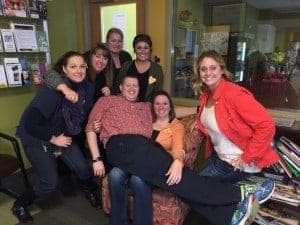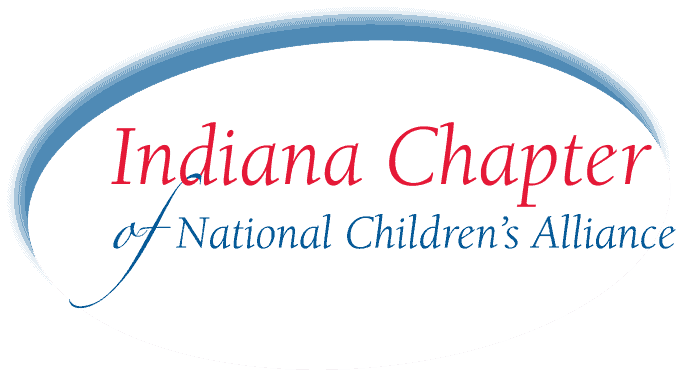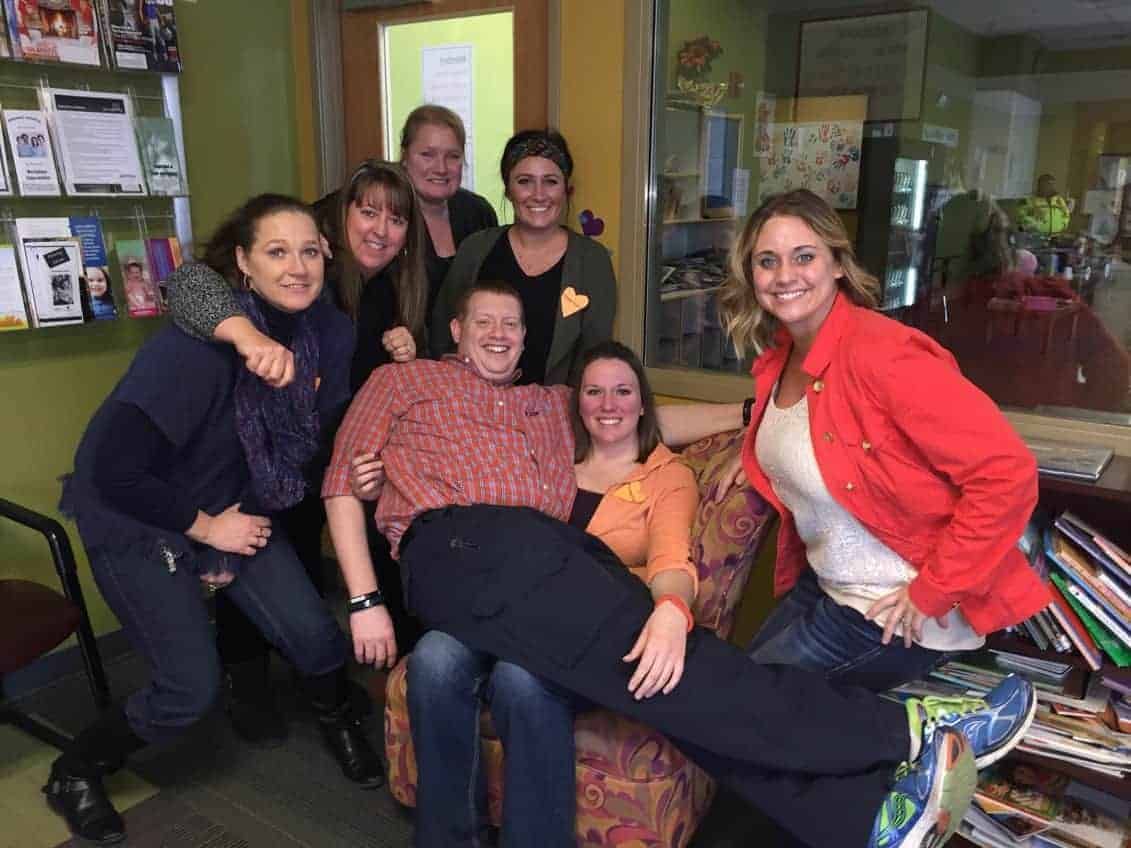“The CAC function in Marion County would be better served if led by the Prosecutor’s Office.” That was the statement that was made by several professionals who were members of the multidisciplinary child abuse investigative team that existed in Marion County when the Marion County Family Advocacy Center dissolved as a 501(c)(3) not-for-profit organization back in 2003. A former Marion County Prosecutor agreed and the Marion County Child Advocacy Center (MCCAC), serving all of Indianapolis, was born as a new division of the Marion County Prosecutor’s Office (MCPO). Today, the MCCAC operates under the Special Victims Unit at MCPO and is led by a Deputy Prosecutor serving as its Executive Director.
But the purpose is still there from before the change in leadership: “Conduct the most comprehensive interview that can be done for children and families, in a child-safe and family friendly environment where all members of the multi-disciplinary team (MDT) can rely on each other for information,” says Kim Rasheed, the Executive Director of the Marion County Child Advocacy Center.
A six-year veteran of the Center, Rasheed oversees a unit of prosecutors and support staff, including three family advocates and three child forensic interviewers all working with hundreds of other Marion County MDT professionals under one roof. Rasheed got her start in public service back in 1993 working under the Honorable Michael P. Barnes in St. Joseph County when he was the elected Prosecutor, who now serves on the Indiana Court of Appeals. “It was the best decision I ever made,” she says. “I really learned so much working in that office and the passion to fight for victims of crime was instilled in me.”
A passion that helps Rasheed and her team overcome immense obstacles, serving between 1,200 and 1,800 families annually. A slight decrease over its historical highs in the early 2000’s.
Marion County’s CAC is different than a lot of other CACs across Indiana because of its close ties and funding to the Prosecutor’s office. Some people would argue that it takes away neutrality when a CAC is run by a government agency, like a Prosecutor’s Office. Rasheed said, “It sounds like they think we can’t be impartial. I can respect that perspective, but disagree with it.”
Rasheed’s calm and steady demeanor isn’t rattled at those claims. “I feel we’ve been successful through the years and have learned from our mistakes, improving things as needed. We can demonstrate our neutrality through our recordings of interviews.” She continues, “The whole idea behind a CAC’s staff and the Multidisciplinary Team (MDT) working together is that it allows others to chime in with different perspectives and considerations on the best ways to meet the needs of a specific family or how to collaborate investigative strategies so not to duplicate efforts. I don’t feel like we run our CAC that different than any other CAC. We do our best each day to meet all NCA standards, follow best practices and put the child and their non-offending caregivers first.”
In neighboring Johnson County, Lisa Vanek works in another prosecution-led CAC. As a Victim Advocate in the Johnson County Prosecutor’s Office, Vanek has been in the industry for 10 years in a county that’s undergone immense population changes as it transitions from rural farmland to immense suburbs in the same amount of time. She says, “What started out as motivation for the Johnson County Prosecutor to obtain better evidence for criminal prosecution of child sexual abuse cases turned out to be a great service for children and families.” There, the Prosecutor’s Office wanted more than just the usual evidence of a crime. They wanted to ensure the statement of the child was obtained in a safe, comfortable, environment.

For CACs across Indiana and communities across the U.S. looking to start a CAC, the model of a prosecution-led and funded CAC isn’t something to be jumped at immediately. In Johnson County, “We didn’t make a decision to be prosecution-led. It was just how it evolved from the start thanks to available resources and leaders at the time.”
Something Rasheed backs up, mincing no words in reiterating, “It doesn’t matter who’s in charge, as long as you maintain [National Children’s Alliance] standards. The child comes first and should be our number one priority.”
Standards Rasheed helped learn about and understand from the Indiana Chapter of the National Children’s Alliance. “The Indiana Chapter, its board and especially Jan Lutz, the Chapter’s Director, was one of the first people that taught me about the wonderful work being done by CACs in Indiana and the importance of following NCA standards and their proposed best practices in Marion County.”
“Many have gone before and started centers, established protocols, policies, and procedures, worked through challenges, celebrated successes, etc. Jan is a wealth of knowledge and can provide tools and resources before I even know what to ask,” says Vanek.
Every CAC is unique and provides a different service to their community. “This is tough work. We all have good days and bad days. Everyone associated with the Indiana Chapter of the National Children’s Alliance knows that. Together we can share experiences and encourage one another. That support is invaluable.”
Rasheed takes a thoughtful moment to add, “I can only speak about our Marion County operation. Other CACs shouldn’t just be designed like us. For us, it works; Marion County families being able to access every agency in one place is key and a huge benefit for everyone involved.” That close working environment and cooperation is a model that’s working well for both Marion and Johnson Counties.
But while the funding may flow from the Prosecutor’s Office, interviewers are “located separately from our main office, which is downtown, for a reason,” says Rasheed. “Making sure our interviewers maintain their neutrality is critical to the admissibility of a child’s statement. In a major felony child abuse jury trial, you still ultimately have to rely on 12 people in the community to agree that the evidence and statements that were presented to them for their consideration was enough proof beyond a reasonable doubt so that they are firmly convinced that the defendant did what he or she was accused of doing. The child’s interview becomes an important part of that process and must be done in a legally defensible way every time.”
In Johnson County, the arrangement goes a step further where they have no full time interviewers. “It’s the preference of our Deputy Prosecutor that I don’t conduct interviews,” says Vanek. Instead the CAC relies on specially trained Case Managers from the Indiana Department of Child Services or law enforcement officers to conduct interviews.
Asked if there are any clear and measurable benefits to a prosecution-led model or not, Vanek reiterates it’s entirely up to what’s best for the community. “These cases are hard no matter what…I don’t think there would ever be a measurable difference from one model to another. Regardless of who is leading the cause, a team works collectively to conduct a complete and thorough investigation and a comprehensive interview.”
Johnson County’s arrangement operating out of the same building does have one benefit, says Vanek. “When kids come into the CAC and have a good experience they remember that. If the Prosecutors Office files charges and the child has to return later to prepare for trial, they have good feelings to associate with the office and that is comforting to both the child and the family.”
No matter how the CAC is setup and funded, one key factor in a CAC’s success is the relationship it has with their local Prosecutor’s Office and being able to maintain that as leadership changes. “There’s so much good research out there that supports what CACs are doing,” says Rasheed with heartfelt emotion. “Children are generally suspicious of other adults outside their family because we teach them of ‘stranger danger’. It’s hard to build trust with a child, but CACs are designed to build almost instant-comfort from the time they arrive which carries through to their follow-up contacts with CAC staff. Because of that experience, children and their non-offending caregivers are more trusting of the process, Criminal Justice System, tend to stay more invested in the experience.”
It’s necessary for Child Advocacy Centers around Indiana and the country working with their Prosecutors to continually engage in education and dialogue for both sides to improve and do their jobs. “Part of our history in Johnson Country includes being completely destroyed by a flood over a year and a half into our work,” says Vanek with a heavy and thoughtful reflection. “We had to start all over. We had to keep conversations going to make sure everyone remained committed to the CAC model so we could get up and running as quickly as possible. That required ongoing conversations to sustain momentum while plans for rebuilding were being considered.”
A point Rasheed furthers, “If you do not have a Prosecutor invested in the CAC model, there will be disconnect between all that progress that’s made at the CAC and the Prosecutor’s ability to achieve successful outcomes for the criminal case. If you don’t have Prosecutors guiding and educating [other MDT members] about lessons learned on other child abuse cases, the CAC can’t make the necessary improvements to better serve the needs of their child visitors and needs of their MDT partners.”
Regardless of how a Center is structured, funded, or staffed, Vanek and Rasheed agree nearly in unison: “Everything begins and ends with the child’s statement.”

